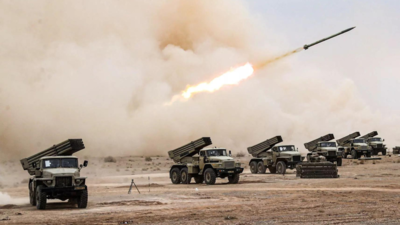Examining the causes, consequences, and chances for de-escalation of the current escalation between Iran and Israel. Recognize the conflict’s dynamics and how they affect regional and international security.
Concerns over regional stability and international security have been raised by the recent escalation of hostilities between Israel and Iran, which has once again thrust the Middle East into the public eye. We’ll go over the main elements of the dispute, assess the most recent occurrences, and consider the ramifications for the area and beyond in this blog post.
Deciphering the Circumstance: Our Knowledge
Israeli Attacks in Iran
According to reports, Isafahan’s airport heard explosions after Israeli missiles attacked a place in Iran. The event highlights the continued hostility between the two countries, even if the precise target and amount of the damage are yet unknown.
Iranian Counterattack
Iran promptly retaliated with a drone strike, claiming it was a response to an earlier attack by Israel on its embassy complex in Syria. This tit-for-tat escalation emphasizes how unstable the Israel-Iran confrontation is and how much further escalation is possible.
Security of Nuclear Facilities
According to reports, nuclear facilities in the province of Isfahan, including the uranium enrichment site in Natanz, are safe despite the attacks and increased tensions. This is encouraging news in the midst of the chaos, indicating that critical resources have been protected thus far.
Examination: Evaluating the Dynamics
Warfare Through Proxy
The Israel-Iran war is not limited to face-to-face exchanges; it often takes the form of clandestine operations and proxy troops. A complicated web of alliances and rivalries exists across the area as a result of both sides using allies and associated organizations to further their own agendas.
Regional Consequences
Beyond only causing tensions between the two countries, the Israel-Iran conflict has an effect on the Middle East as a whole. Other regional actors like Syria and Lebanon are involved, which increases complexity and raises questions about potential instability on a larger scale.
International Security Issues
The Israel-Iran stalemate has enormous ramifications for international security due to the stakes involved, which include the possibility of nuclear proliferation and a regional confrontation. The world community keeps a careful eye on the situation, aware of the possibility of escalation and the global fallout.
Prospects for De-escalation in the Future
Diplomatic Routes
Even with all of the bluster and military posture, diplomacy is still essential to finding a way to defuse the situation. While they come with significant obstacles and deeply ingrained animosities, dialogue and negotiation provide a way to reduce tensions and stop them from rising further.
Concerns for Humanitarian Relief
It’s critical to consider the humanitarian effects of war escalation in the middle of geopolitical considerations. The majority of the violence and instability in impacted regions harm civilians, which emphasizes the critical need for diplomatic solutions and international assistance for humanitarian measures.
Unpredictable Future
Although there is still potential for a de-escalation, the Israel-Iran war is so unstable that things might change quickly. It takes diligence, moderation, and coordinated diplomatic action to negotiate the complications and lessen the chance of a larger conflict.
Final Thoughts
The Middle East’s hot spot is still the Israel-Iran conflict, with recent developments highlighting the precariousness of regional security and the possibility of escalation. There is an increasing need for discourse, moderation, and humanitarian action as tensions rise and diplomatic attempts are made.



